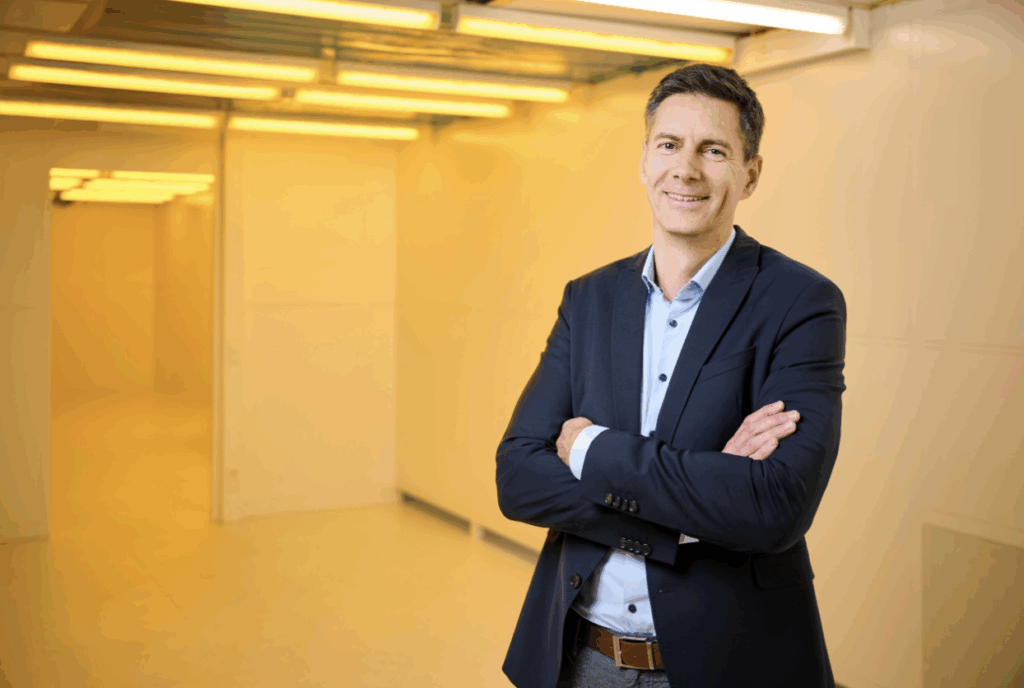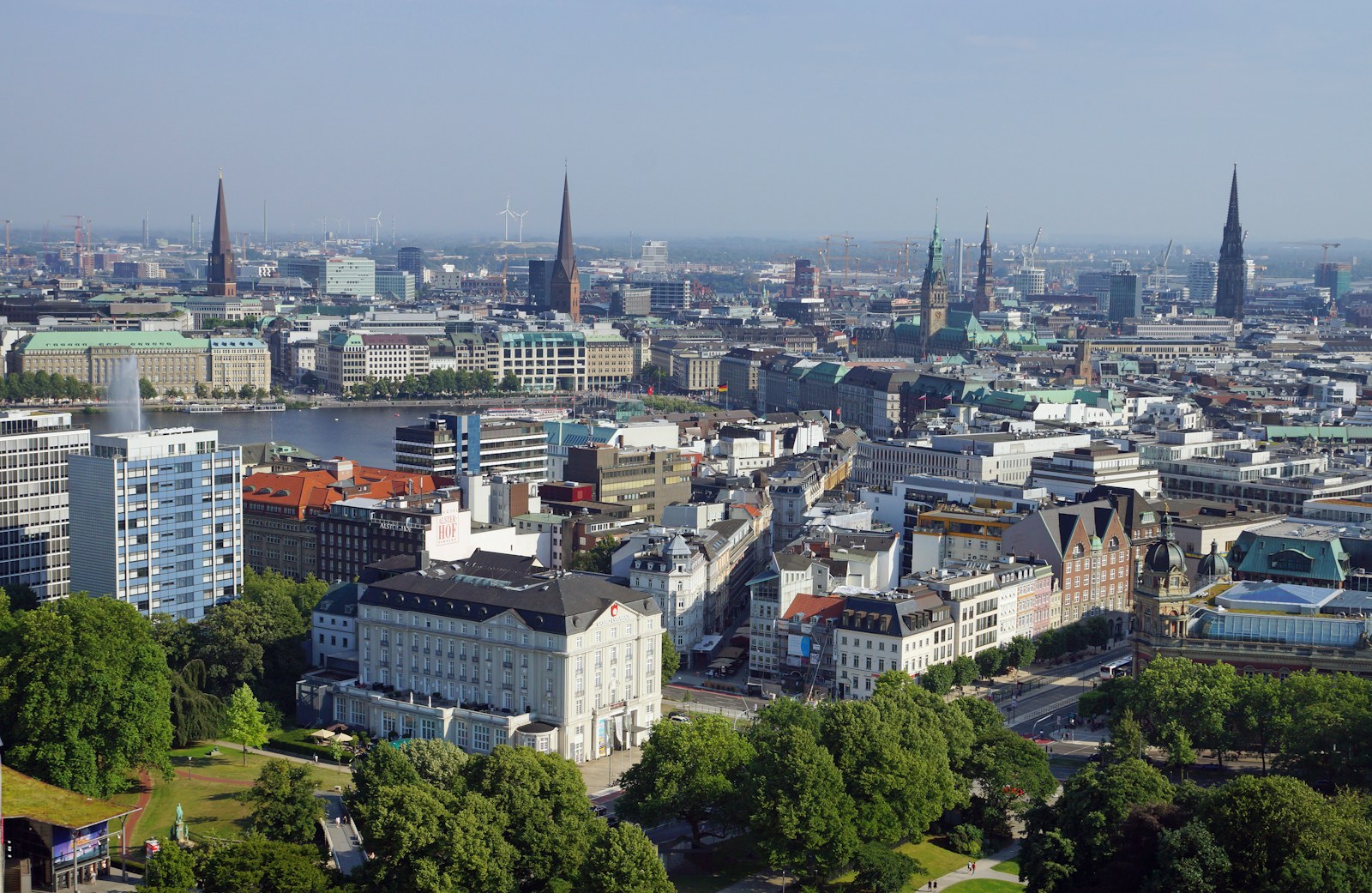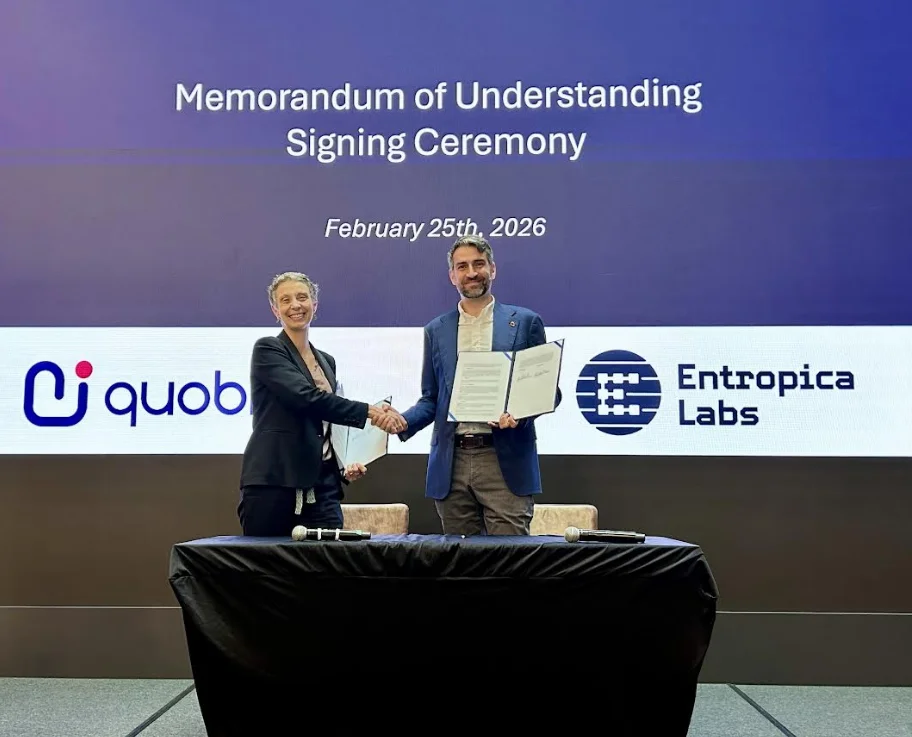Insider Brief
- Hamburg is emerging as a key hub in Germany’s national quantum computing strategy, led by the German Aerospace Center’s (DLR) Quantum Computing Initiative.
- Five quantum computers are being built at DLR’s innovation center in Lokstedt, with projects focused on applications in mobility, artificial intelligence, materials science, and cybersecurity.
- According to Hamburg Business, early demonstrator systems are already operational, with larger, more complex quantum computers expected by 2027.
- Photo by Martti Salmi on Unsplash
Hamburg is emerging as one of its most active hubs in Germany’s national quantum efforts, according to a recent interview with a top quantum ecosystem expert. The city’s growing ecosystem, led by the German Aerospace Center (DLR), is positioning itself as a testbed for real-world quantum applications in mobility, artificial intelligence and cybersecurity.
According to Hamburg Business, this regional push forms part of a national program launched in 2021, when the Ministry for Economics and Energy allocated €740 million to the DLR Quantum Computing Initiative (DLR QCI) to build German prototype quantum computers within four years.
The investment aligns with Germany’s 2023 national action plan for quantum technologies, which sets the goal of consolidating Europe’s leadership in the field through “targeted, long-term support.” This effort continues despite a challenging funding environment in the country.

“Despite the funding cuts, Hamburg has a promising quantum computing ecosystem,” said Dr. Robert Axmann, Head of the DLR Quantum Computing Initiative, in an interview with Hamburg Business. “Five quantum computers are being built at our innovation centre in Lokstedt and will be made available to DLR research teams and industrial partners across Germany.”
The innovation centre serves as one of several DLR nodes nationwide, each specializing in a different quantum technology. While the DLR’s Ulm branch focuses on universal quantum processors using photonic circuits and neutral atoms, Hamburg’s team is advancing systems based on ion trap, a leading candidate for scalable quantum computers.
Ion trap quantum computers use charged atoms suspended in electromagnetic fields to store and process information. Their stability makes them attractive for high-fidelity computation, though scaling them to large numbers of qubits remains a technical hurdle.
The DLR’s open-technology strategy reflects a recognition that no single architecture has yet proven dominant.
“Not all projects will be successful,” Axmann said, as reported by the business magazine.

Quantum Mobility
Hamburg’s strong position in logistics, aerospace and port operations has made it a natural fit for mobility-focused quantum projects. According to Hamburg Business, the QCMobility initiative is testing how quantum computers can optimize air, rail, road, and maritime transport systems.
“The QCMobility project focuses on optimising air, rail and road transport, as well as the maritime environment and intermodal transport,” said Axmann. The project uses simplified demonstration problems to test algorithms on DLR’s quantum hardware, with results feeding into a national “Quantum Computing and Mobility” roadmap.
Industry stakeholders include Fraunhofer, Lufthansa Industry Solutions, Deutsche Bahn, and logistics firm Dachser. One subproject, Quantum-Inspired Traffic Signal Control (QI-TraSiCo), is using quantum algorithms to improve real-time traffic optimization and control. According to the article, this is an early test of whether quantum approaches can outperform classical computing methods in time-sensitive urban systems.
Hybrid Intelligence
Beyond logistics, DLR researchers are exploring how quantum computing could accelerate artificial intelligence.
“AI excels at complex computing tasks, but quantum computing could solve them far more effectively and become a new catalyst of AI,” Axmann told Hamburg Business.
One program, QCoKaIn (Quantum Computing and AI for Anomaly Detection), merges quantum algorithms with machine learning. The goal is to identify anomalies in large data sets. For example, the system could detect unusual flight data patterns and tracing their root causes in real time.
A central feature of the project is its focus on hybrid quantum computing, which combines quantum processors with high-performance classical supercomputers. This hybrid model is considered the most practical near-term path toward useful quantum advantage. QCoKaIn also incorporates causal inference, a branch of AI that studies cause-and-effect relationships in data, potentially improving explainability and trust in automated systems.
If successful, the research could lay the foundation for AI systems that continuously learn from real-world sensor data, with quantum accelerators providing the computational lift.
Materials, Security and the Next Wave
The DLR Quantum Computing Initiative is also investigating applications in materials science — an area where simulation plays a critical role.
“Quantum computers could significantly speed up this process,” Axmann said. “We could literally save years by trying out different combinations of molecules and identifying relevant candidates that have significantly improved e.g., thermal conductivity, corrosion behaviour or temperature resistance.”
Quantum simulation could help design new alloys for aircraft and spacecraft components, as well as lighter, stronger materials for industrial manufacturing.
Another area of focus is cybersecurity, according to Axmann.
“We are working with the German Federal Office for Information Security and are investigating the security of cryptosystems in the age of powerful quantum computers,” he said.
The collaboration is exploring post-quantum cryptography — encryption methods that can resist attacks from future quantum computers. Initially, the research aims to better understand how quantum systems could compromise today’s cryptographic standards, but the longer-term goal is to develop new security frameworks designed to withstand quantum-level threats.
A National Experiment
The DLR’s work in Hamburg reflects a broader European ambition to close the gap with quantum programs in the United States and China. Germany’s federal strategy emphasizes both industrial translation and academic research, aiming to anchor quantum activity in regional innovation centers like Hamburg, Ulm, and Jülich.
According to Hamburg Business, six projects are currently underway in Hamburg under the DLR Quantum Computing Initiative, each focusing on both hardware development and enabling production technologies. Early demonstrators have already been completed, with larger, more complex systems expected by 2027.
Still, challenges remain. Building large-scale, error-corrected quantum computers will likely take longer than initial funding cycles allow, and competition for skilled researchers is intensifying. Axmann acknowledged this uncertainty but underscored the need for perseverance.
The first milestones — the production of demonstrators, or early prototype systems and proof-of-concept quantum computers — have already been achieved. However, the group is expecting even bigger systems in 2027.















